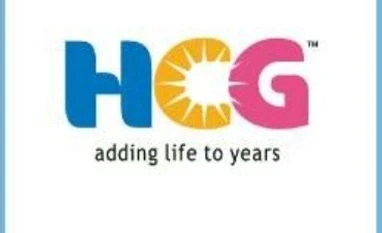While the appetite for health-care stocks remains strong, the latest being HealthCare Global Enterprises, further re-rating of existing firms on the back of higher valuations sought by new firms is unlikely. Analysts say the recent re-rating of healthcare stocks has meant valuations have already factored in best-case scenarios. Sarabjit Kour Nangra of Angel Broking says there is little scope for re-rating now as valuations are healthy and the focus will shift to sustained improvement in capital-efficiency ratios.
The other reason there won't be further re-rating is the availability of choice. Earlier, the only listed firm profitable consistently was Apollo Hospitals, which was getting a scarcity premium (Fortis Healthcare was the other). After the listing of Narayana Health (formerly Narayana Hrudayalaya) and HealthCare Global Enterprises, investors now have more options to choose from. Scarcity premium for Apollo Hospitals’ stock could also fade given new investment opportunities across the value-chain.
In an earlier report, JPMorgan had said the increase in the number of stocks would put pressure on Apollo’s ability to meet investor expectations on earnings growth and return on capital employed. Its strong earnings growth over FY09-13 at 28 per cent and that it was the largest domestic health-care company led to its re-rating from an average of 15 times on an enterprise value to earnings before interest, taxes, depreciation, and amortisation basis during 2008-14 to the current 25 times. However, despite earnings cuts over the past two years, investors continued to be bullish based on the sector’s long-term potential and gains from Apollo’s expansion after its completion in FY18.
This is why immediate returns are not exciting.
The other reason there won't be further re-rating is the availability of choice. Earlier, the only listed firm profitable consistently was Apollo Hospitals, which was getting a scarcity premium (Fortis Healthcare was the other). After the listing of Narayana Health (formerly Narayana Hrudayalaya) and HealthCare Global Enterprises, investors now have more options to choose from. Scarcity premium for Apollo Hospitals’ stock could also fade given new investment opportunities across the value-chain.
In an earlier report, JPMorgan had said the increase in the number of stocks would put pressure on Apollo’s ability to meet investor expectations on earnings growth and return on capital employed. Its strong earnings growth over FY09-13 at 28 per cent and that it was the largest domestic health-care company led to its re-rating from an average of 15 times on an enterprise value to earnings before interest, taxes, depreciation, and amortisation basis during 2008-14 to the current 25 times. However, despite earnings cuts over the past two years, investors continued to be bullish based on the sector’s long-term potential and gains from Apollo’s expansion after its completion in FY18.
More From This Section
While there is little doubt about the potential (demand surge led by higher penetration in Tier-II and Tier-III cities and more insurance coverage), health care is capital-intensive, with long gestation periods. Hospital units need upwards of five years to generate high returns. The mature hospitals of Apollo Hospitals generate operating profit margins of 25 per cent, while the company’s overall margins are 17-18 per cent.
This is why immediate returns are not exciting.
)